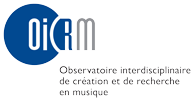 Chaire Rémi et Carmelle-Marcoux, HEC Montréal – Observatoire interdisciplinaire de création et de recherche en musique, Université de Montréal
Chaire Rémi et Carmelle-Marcoux, HEC Montréal – Observatoire interdisciplinaire de création et de recherche en musique, Université de Montréal
Résumé (conférence donnée en anglais)
Audience development has been, for many years, a significant challenge and a topic of research in the high arts, especially for the classical and contemporary music sectors. The patterns of classical music consumption were carefully analyzed since Belk and Andreasen (1980) identified the factors of future attendance and Paterson and Kern (1996) identified eclectic behaviors among classical music attendees. Since then, orchestras, opera houses and new music groups have developed cross-marketing campaigns with popular music as well as other art forms, optimized ticket pricing and subscription offers, focused on specialized and free events to reach potential new audiences, and developed a number of marketing strategies to reach out to younger audiences, including through new media.
Based on financial data from publicly funded classical and new music groups in Quebec, this research shows a general fragmentation of public support, reflecting a larger trend of market fragmentation in the performing arts. However, expected decreases in subscriptions and, to a lesser extent, single tickets’ revenues were not confirmed. By analysing the data according to the organizations’ level of income and type of music, the research shows no significant change in marketing expenses, except for a shift towards audience development activities, especially for large scale organizations. This shift may be an indication that music organizations are responding to market fragmentation by reallocating their marketing expenses towards long-term audience development strategies instead of traditional publicity and advertising.
ROY, Xavier, COURCHESNE André et François COLBERT. « Le développement de publics en musique savante au Québec : une réponse à la fragmentation du marché? », 18th International Conference of Association of Cultural Economics International, Université du Québec à Montréal, Montréal, 26 juin 2014.








